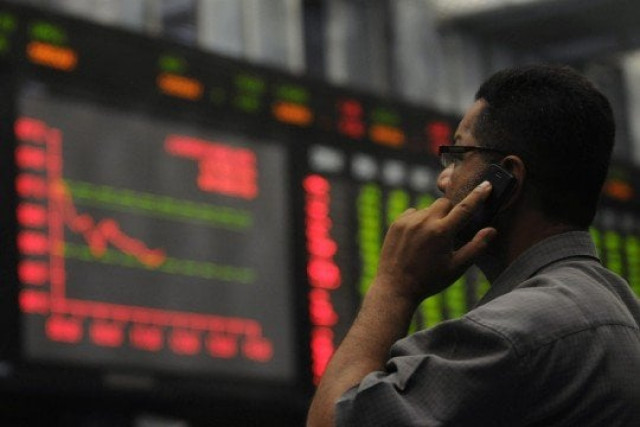Where’s the limit?: Will the KSE break the 20,000 barrier in 2013?
Analysts are reluctant to say yes, but provide broad hints suggesting it might come close.

Two main factors are likely to drive growth: a continued resilience in corporate earnings, and an increasing likelihood of foreign investor attention. PHOTO: AFP
After a blow-out year in 2012, with the benchmark KSE-100 index rising 49%, can investors expect the index to breach the 20,000-point mark in 2013? Most stock market analysts are reluctant to say so explicitly, though their forecasts suggest that the market may, at least, get close.
One of the more optimistic forecasts is by Syed Rehan Ali, a technical research analyst at Foundation Securities, who predicts that the stock market may hit the 19,700 level by the end of calendar year 2013 – though he hastens to add that there is likely to be plenty of volatility in the earlier half of the year, when the index may actually slide back to the 15,700 level.
The 20,000-point barrier may sound dizzyingly high, but it is only about 18.3% higher than the closing level of 2012. Given the fact that the market’s 10-year average return is 21.2%, the KSE-100 index would only need to have a below average year in order to breach that important psychological barrier.

But it is not just the technical factors that favour a continued rise in the equity markets. Fundamental factors also favour another profitable year for equity market investors. Two main factors are likely to drive growth: a continued resilience in corporate earnings, and an increasing likelihood of foreign investor attention.
Corporate earnings have grown remarkably strongly over the past couple of years. In 2011, the last year for which complete data is available, net incomes for all companies listed on the Karachi Stock Exchange increased by 27.3%, according to data released by the State Bank of Pakistan. The corresponding figure for 2012 is likely to be in a similar range, judging by preliminary data.
For 2013, the outlook for key sectors appears strong. The devaluation of the rupee is likely to help revenue growth at companies in the energy sector as well as textile exporters, according to BMA Capital, an investment bank. Given high levels of operational leverage, even a slight increase in revenues is likely to result in a substantial increase in profits for most of these companies.
Another factor at play is election spending, which is likely to drive growth in cement sector stocks as the government spends more money on infrastructure projects in the run-up to the polls. This growth may be cyclical, but it is likely to benefit the economy nonetheless.
Secular factors – such as the rising purchasing power of the middle class – are also at play and are likely to cause a renewed interest in food and consumer goods companies, particularly from foreign investors.
Another factor at play in this sector is likely to be the more than $335 million that investors will be looking to redeploy in the food and consumer goods sector after they receive their payouts from Unilever Pakistan, which is looking to de-list from the Karachi Stock Exchange.
And then there is the expected interest from foreign investors, who have struggled for returns in both their own home markets as well as more established emerging markets. In 2013, at least some of them are likely to turn their attention towards frontier economies like Pakistan, which means that valuations for Pakistani stocks are likely to rise.
According to Raza Jafri, a research analyst at AKD Securities, the Pakistani equity market is currently trading at 7.2 times expected 2013 earnings. This is not only below regional markets but also below even Pakistan’s own historical levels. Add in an expected dividend yield of 7.6% and Pakistani stocks will suddenly start to look very attractive indeed, even to foreign investors who have hitherto remained skittish. That increased demand, in turn, is likely to turn into a self-fulfilling prophecy of higher returns.
reporting by Farooq Tirmizi
Published in The Express Tribune, January 7th, 2013.
Like Business on Facebook to stay informed and join in the conversation.


















COMMENTS
Comments are moderated and generally will be posted if they are on-topic and not abusive.
For more information, please see our Comments FAQ